Invited speakers
All ===> 41
-

Didier Guillaume
Minister of Agriculture and FoodFrance+
Education and political experience
Education: Public finance, treasury
1983 Municipal councillor, Bourg-de-Péage
1986-1997 Federal Secretary of the Drôme Socialist Party
1990-1992 Head of the Cabinet of the President of the Drôme Departmental Council
1998-2002 Councillor responsible for political affairs in the Cabinet of Jean Glavany, French Minister of Agriculture, Fisheries and FoodElectoral mandates and political offices
1992-1998 Rhône-Alpes Regional Councillor
1995-2004 Mayor of Bourg-de-Péage
1998-2015 Drôme Departmental Councillor, elected in the canton of Bourg-de-Péage
2001-2004 President of the Drôme Association of Mayors
2004-2015 President of the Drôme Departmental Council
2008-2018 Senator for Drôme
2014-2018 President of the socialist group in the French Senate
Since 2018 French Minister of Agriculture and Food
H.E Dr. Eyasu Abraha Alle
State Minister of Agriculture and Natural ResourceEthiopia+
H.E. Dr. Eyasu Abraha Alle is currently working with the rank of a State Minister and as a special advisor to the Minister for Agriculture in Ethiopia. Before the merger of the Ministries of Agriculture and Natural Resources, and Livestock and Fisheries; he was a Minister for the Ministry of Agriculture and Natural Resources (November 2016 to May 2018). He is a champion and transformational leader in mainstreaming agroforestry extension system through establishing the National Agroforestry Platform and an International Think Tank to support an Agroforestry Development for achieving sustainable agricultural production, resilient livelihoods and ecosystems across the country. He understands very well the importance and roles of agriculture in economic development as a means for building a prosperous future - particularly for the younger generation.
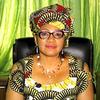
Rosalie Matondo
Republic of the Congo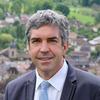
Vincent Labarthe
Vice-president in charge of Agriculture of the Occitanie-Pyrénées-Méditerranée RegionFrance
Prof. Philippe Augé
President, University of MontpellierFrance+
Philippe Augé is a professor of public law with a specialization in tax law, tax procedures and public finance. Prior to his re-election as President of the University of Montpellier in January 2019, he served as:
President of the University of Montpellier 1, (March 2009 - December 2014; re-elected in March 2012)
President of PRES Sud de France, (January 2012 - January 2015)
Chairman of the Legal Committee of the Conférence des Présidents d’Université (Conference of University Presidents), (2012 - 2014)
Vice-Chairman of the Board of Directors of the University of Montpellier 1, (April 2004 - March 2009)
Director of the University Service for Information, Orientation and Professional Integration (SCUIO-IP), (2002 - 2009)
President of the SCUIO-IP National Directors’ Conference, (July 2007 - June 2009)
Director of the DESS (Master’s program) and then the Professional Master’s of Public Financial Law, (2003 - 2006)
Member of the National Council of Universities, 2nd section: Public Law, (October 2005 - December 2008)
Director of Studies at the Institute for Preparation for General Administration (IPAG), (2002 - 2007)
Vice Dean of the Faculty of Law, (2001 - 2003)
Deputy Director of the Overseas Law Institute (IDOM), (1999 - 2005)
Philippe Augé was made Chevalier de la Légion d’Honneur (Knight of the national order of the Legion of Honour), Chevalier dans l’Ordre national du Mérite (Knight in the National Order of Merit) and Officier dans l’Ordre des Palmes Académique (Officer in the Order of Academic Palms).

Jean-Manuel Bluet
Sustainable Development, Nestlé France / Alliance pour la Préservation des ForêtsFrance
Hervé Bourguignon
Managing director, MoringaFrance+
Hervé has extensive experience in business and project development in developing countries, particularly in Latin America and Africa. He was CEO of Elf Lubricants in Mexico, 1990 - 1997 and CEO of Elf Lubricant‘s international division, 1998 - 2002. In this role, he managed 13 subsidiaries in Latin America, Asia and Africa. He was President of IFIA (Interafrican Forest Industries Association) from 2005 - 2011.
He played a key role in obtaining FSC certification of 5.3 million forest hectares. In addition, he was also instrumental in promoting tropical woods in international markets and championing high value processing of forest products in Africa. He has also served as a lecturer at HEC Paris on company management in emerging countries.
Hervé has a Master’s degree in Philosophy, a degree in Law and graduated from EDHEC in business administration. In addition, he studied international marketing at INSEAD (1988). He speaks French, English, Spanish and Portuguese fluently.

Stephen Briggs
Farmer & Consultant, AbacusAgriUK+
Stephen is a practical farmer and consultant. He supports organic farmers as the principal of “Abacus Agri” providing sustainable farming consultancy throughout the UK and internationally. He has expertise in soil management, crop production, agroforestry and business management. Stephen is also head of Soil and Water at Innovation for Agriculture, part of the Royal Agricultural Society of England. He guest lecturers at Universities and has held posts on UK Government Policy and Research and Development Committees. Author of 'Organic Cereal and Pulse Production' (2011). Stephen was a 2011 Nuffield Farming Scholar studying Agroforestry around the world. He was the first vice chairman of the European Agroforestry Federation (EURAF) and is active in influencing agricultural policy at UK and EU levels. Stephen is a founding director of ‘Speedwell Farming Ltd’ and is a Director of Anglo Chinese Food Ventures (ACFV) and he was a founding Director of the Institute of Organic Training and Advice. Stephen works with private companies, NGO’s, Governments, and local authorities to develop innovative sustainable food production and conservation programmes integrated with other land use systems.
At home, Stephen farms 110 ha of land in Cambridgeshire & Rutland growing cereals, root crops, vegetable and fruit crops and is pioneering agroforestry, with the UK's largest system on 52ha, growing apple trees and field crops together. Agroforestry – 3D farming, mixing trees with crops and or animals on the same area, is a perfect example of ecological intensification.

Andrew Campbell
Australia+
Andrew Campbell is the Chief Executive Officer of the Australian Centre for International Agricultural Research (ACIAR). His research interests span the interactions between climate, water, energy and agrifood systems, and the interface between science and policy.
Professor Campbell trained in forestry at Creswick and the University of Melbourne, and in agricultural knowledge systems at Wageningen University. He was Australia's first National Landcare Facilitator and remains involved in his family farm in south-eastern Australia.

Patrick Caron
Chairperson, High Level Panel of Experts (HLPE) of the UN Committee on world Food Security (CFS) / Vice President, University of MontpellierFrance+
Patrick Caron is a veterinary doctor, PhD in development geography. He is a specialist of farming systems and territorial dynamics, with a special focus on livestock farming.
International Director at Montpellier University of Excellence - MUSE, he has been appointed Vice President for International Affairs of the University of Montpellier in January 2019.
He joined CIRAD in 1988 where he has been Director-General for research and strategy from 2010 to 2016, after having served as scientific director for the “Territories, Environment and People" Department of CIRAD (2001-2004) and as "Environments and Societies" Department director from 2007 to 2010. His works relate to the analysis of the role of agriculture and livestock in rural transformations, particularly in Brazil, Southern Africa and the Near East.
He is a member of many institutional and inter-institutional bodies. He is in particular chairing the Scientific Council of AgroParisTech and a member of the French National Council for Development and International Solidarity. In 2015 he chaired the Organizing committee of the Global Science Conference on Climate Smart Agriculture (Montpellier, France), in 2016 of the international conference Agrichains and sustainable development and in 2017 the international conference on Living Territories.
He has been appointed as the Chair of the High Level Panel of Experts (HLPE) of the Committee on World Food Security (CFS) in November 2015 and once again in November 2017 (until 2019).

Gilles Delaunay
Farmer, France
Christian Dupraz
France+
Christian Dupraz is a senior scientist at INRA (French National Institute for Agronomical Research). He worked on fodder trees, afforestation techniques including treeshelters, agroforestry and agrivoltaic systems. He set up agroforestry experiments in France that have been continuously monitored for almost 25 years, providing unique datasets. With his team and many colleagues from different countries he developped biophysical models of tree-crop interactions in alley-cropping systems, and evidenced the high Land Equivalent Ratio of temperate alley-cropping systems. He wrote the reference guidebook about temperate zone agroforestry entitled "Agroforestry : trees and crops" first published in 2008. Christian Dupraz was the founding President of the French Agroforestry association in 2007 and of the European Agroforestry Federation (EURAF) in 2011. He has been committed to lobby for agroforestry at the French and European levels since 1998. He is also an elected member of the Occitanie Region Parliament.
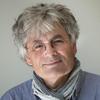
Michel Eddi
France
Mylène Fourcade
France
Chad Frischmann
Vice President and Research Director, Project DrawdownUSA+
Chad Frischmann is co-author and the lead architect of the methodology and models underpinning the New York Times best-seller Drawdown: The Most Comprehensive Plan Ever Proposed to Reverse Global Warming (Penguin, 2017). Drawdown was the #1 best-selling environmental book of 2017 and is currently being translated into over ten languages. In collaboration with a global team of researchers, Chad designed integrated global models to assess the world’s most effective climate solutions and determine if, when, and how the world can reach “drawdown,” the point in time when the concentration of atmospheric greenhouse gases begins to decline on a year-to-year basis. With an interdisciplinary background in public policy, human rights, sustainable development, and environmental conservation, Chad works as a systems strategist to build a new, regenerative future with cascading benefits to the environment and to human well-being. As head of research and technology since Project Drawdown’s inception, Chad is a key spokesperson and coalition-builder dedicated to sharing the message and model of Drawdown with the world.
Chad’s talks have been featured at the TED Global ‘We the Future’ series, the University of Oxford, Harvard, the World Business Council on Sustainable Development (WBCSD), the University of California at Berkeley, the Carbon Leadership Forum, the University of Washington, the Massachusetts Institute of Technology, the Dutch Sustainability Congress, the MAD Symposium, and the Global Sustainable Technology & Innovation Conference, among others.
Websites:
http://www.drawdown.org/staff/chad-frischmann
https://www.linkedin.com/in/chadfrischmann/
https://www.chadfrischmann.com/
https://www.ted.com/talks/chad_frischmann_100_solutions_to_climate_change
Twitter: @ChadFrischmann

Dennis Garrity
Kenya+
Dr. Dennis Garrity is a systems agronomist and research leader whose career has been focused on the development of small-scale farming systems in the tropics. He has been serving as Drylands Ambassador for the UN Convention to Combat Desertification, emphasizing the role of agroforestry, evergreen agriculture and landcare as critical to sustainable land management.
He is a Senior Fellow at the World Resources Institute, and Distinguished Senior Research Fellow at World Agroforestry (ICRAF), Nairobi. He served as Director General of the Centre from 2001 to 2011. He is currently focusing on building an African land restoration movement, and is leading an effort to perennialize global agriculture in the 21st Century by Chairing the Global EverGreening Alliance, anticipating the transformation of African and Asian farming through the integration of trees into farming systems, and upscaling the principles and practices of evergreen agriculture to tens of millions of the least-favored smallholder farm families. He also chairs the Steering Committee for Landcare International, a worldwide effort to support grassroots community-based natural resource management.

Vincent Gitz
Indonesia+
Vincent Gitz has been director of the CGIAR Research Program on Forests, Trees and Agroforestry (FTA) since 2016. An engineering graduate of École Polytechnique in France, he also holds a PhD from AgroParisTech on land-use and global climate policies that was awarded the Le Monde Prize for academic research. He has a background in earth sciences and natural resource and development economics. Vincent previously worked in research for the International Research Center on Environment and Development (CIRED) and the French Agricultural Research Centre for International Development (CIRAD). He served as adviser for sustainable development and research to the French minister of agriculture and fisheries, Michel Barnier, from 2007 to 2009, and as assistant director for food policy at the French Ministry of Agriculture, Agrifood and Forests in 2016. From 2010 to 2015, he was coordinator of the High-Level Panel of Experts on Food Security and Nutrition (HLPE), the science-policy interface of the United Nations' Committee on World Food Security (CFS).

Seydou Kaboré
Terre VerteBurkina Faso+
After high school in Abidjan (Ivory Coast), I went to university in Ouagadougou, graduated in 2010 with a Master's degree in Agricultural Economics, Natural Resources and Environment. Very interested in issues related to agriculture and the environment, I joined the NGO TERRE VERTE as trainee at the Filly Pilot Farm (Northern Region, Burkina Faso) in 2011. Convinced by the achievements of pilot farms, I started working as land development manager at the Guié pilot farm at the end of 2011. Since 2016, I am the director of this farm, in place of Mr Girard. Together with my collaborators, we are developing the Sahelian hedgerow concept (“bocage”) in the Guiè area through projects for landscaping perimeters, roads, small dams and rain gardens as well as their maintenance over time with the beneficiary populations. I like reading, especially on agricultural and environmental topics. I am 33 years old and I am married.

Rachel Kolbe Semhoun
InVivo FoundationFrance+
Rachel Kolbe Semhoun is Director of Sustainable Development at InVivo, a group of French agricultural cooperatives, focused on continuously improving sustainable farming solutions and sustainable food systems. She is also Development Director for InVivo Foundation, an endowment fund specialized in improving farmers’ livelihoods, structuring new ag-food chains, and taking care of natural resources. Both are vectors for Positive Agriculture, in which Agriculture is a key component to resolving worldwide challenges, and with which farming models carry a positive Triple Bottom Line. One example is the project Ile Dotun in Ogun State, Nigeria, in which agroforestry is leveraged for land degradation neutrality and its capacity to sustainably reforest degraded soils. American in Paris for 20 years, Rachel has degrees in political science and international relations from Columbia University (NY) and Sciences-Po Paris. Her professional background is rooted in 15 years’ worth of consulting in company strategy, brand strategy and change management across a wide span of sectors and countries.

Roger Leakey
United Kingdom+
Roger Leakey FRGS has both practical (NDA, CDA) and academic (DSc, PhD, BSc) qualifications in Agriculture. He has been Director of Research at the International Centre for Research in Agroforestry (ICRAF 1993–1997) and Professor of Agroecology and Sustainable Development of James Cook University, in Cairns, Australia (2001–2006); and was a Coordinating Lead Author in the International Assessment of Agricultural Science and Technology for Development (IAASTD, 2006-2009). He is author of "Living with the Trees of Life - Towards to Transformation of Tropical Agriculture" (CABI, 2012) and "Multifunctional Agriculture – Achieving Sustainable Development in Africa" (Academic Press 2017) and currently is Vice President of the International Tree Foundation.

Tristan Lecomte
PUR ProjetFrance
Stéphane Le Foll
Former French Minister of Agriculture - Co-Chair of the 4/oo initiative on carbon sequestration in soilsFrance
Philippe Mauguin
President Managing Director, INRAFrance
Gary S. May
UC Davis chancellorUSA+
Gary S. May became UC Davis’ seventh chancellor on Aug. 1, 2017. He leads the most comprehensive campus in the University of California system, with four colleges and six professional schools that offer 104 undergraduate majors and 96 graduate and professional degrees. UC Davis enrolls about 37,000 students, brings in nearly $800 million annually in sponsored research and contributes at least $8 billion to the California economy each year. An accomplished scholar and engineer, May came to UC Davis from the Georgia Institute of Technology in Atlanta, where he had been for nearly three decades, most recently as dean of the institute’s College of Engineering — the largest and most diverse school of its kind in the nation. Prior to being dean, May was the Steve W. Chaddick Chair of Georgia Tech’s School of Electrical and Computer Engineering and, previous to that, he was the executive assistant to then-Georgia Tech President G. Wayne Clough.
May is known as a dynamic leader with a passion for helping others succeed. He believes success is best judged by how we enhance the lives of others. Throughout his career, he has championed diversity in both higher education and the workplace. He developed and led programs to attract, mentor and retain underrepresented women and ethnic minorities in the STEM fields of science, technology, engineering and math.
In 2015, President Obama honored him with the Presidential Award for Excellence in STEM Mentoring. In February 2018, May was elected as a member of the National Academy of Engineering — one of the highest honors in the field — for his innovations in educational programs for underrepresented groups in engineering and his contributions to semiconductor manufacturing research. May has won numerous other honors for his research in computer-aided manufacturing of integrated circuits and has authored more than 200 technical publications, contributed to 15 books and holds a patent in this topic. In 2010, he was named “outstanding engineering alumnus” of UC Berkeley, where he earned his master’s and Ph.D. degrees in electrical engineering and computer science.
Cheikh Mbow
START InternationalUSA+
Dr Cheikh Mbow is the Executive Director of START-International in Washington DC. He is Adjunct Associate Professor at Michigan State University’s Department of Forestry. Dr. Cheikh Mbow has been a Senior Scientist on Climate Change and Development at World Agroforestry Centre (ICRAF), Lead Author for the Agriculture, Forestry and Other Land Use (AFOLU) of IPCC-AR5, and Lead Author for the scoping of the Intergovernmental Science-Policy Platform on Biodiversity and Ecosystem Services-IPBES. Mbow is now a Coordinating Lead Author for the Climate Change (IPCC) Special Report on Climate Change and Land and lead author of IPCC AR6 on AFOLU. He served in many Scientific Committees such as the Global Land Program (2005-2011), the International Geosphere-Biosphere Program-IGBP from 2012-2014, Future Earth (2013-2015). His research is on tree cover dynamics and recovery in the Sahel.
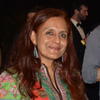
Kamal Melvani
Research Institute for the Environment and Livelihoods (RIEL), Charles Darwin UniversityAustralia+
Kamal Melvani (Kamy), B.A. Indian Philosophy, University of Madras; India, M.Sc. Integrated Water Resources Management, University of Peradeniya, Sri Lanka, has just completed her Ph.D. dissertation on the multiple values of Sri Lankan forest gardens (agrobiodiversity, environmental resiliency, food and nutritional security, and family financial wellbeing) at the Charles Darwin University, Australia.
Kamy is Managing Director of the Neo Synthesis Research Centre, Sri Lanka and Landcare Lanka. In order to prove her fervent belief that forest gardens are the way forward, Kamy has engaged with farmers to rehabilitate degraded land into productive forest gardens since 1992. Introducing regenerative agriculture, analog and conservation forestry, and bioremediation to rural communities, she has trained thousands of farmers, agricultural and forestry extension officers, representatives from government ministries and both local and international NGOs. Formal training programmes have been presented in Sri Lanka, Bangladesh and most recently in Mongolia. Her work in the bioremediation of nitrates in groundwater was listed as one of the world’s top ten water projects at the World Water Forum in 2009.
Responding to their interest in growing food crops under trees, Kamy is now establishing demonstration forest gardens in cooperation with aboriginal communities in Queensland, Australia. Given her long years in land rehabilitation, Kamy will continue to cultivate food forests into the future.

Saul S. Morris
Global Alliance for Improved Nutrition (GAIN)United Kingdom+
Saul joined GAIN in September 2017, and leads the technical support to and oversight of the organisation’s programme portfolio across Asia and Africa. He manages a team of approximately 30 staff focusing on: food policy and finance; supply chains for nutritious foods, and targeted nutrition programmes.
Saul was previously Head of the Nutrition and Public Health Intervention Research Unit at the London School of Hygiene & Tropical Medicine (University of London), and also worked as a Research Fellow at the International Food Policy Research Institute in Washington DC, as well as a visiting university lecturer in Brazil. He has 82 publications in peer-reviewed journals, including as one of the core group of authors of the original (2008) Lancet series on maternal and child undernutrition.
Saul also spent a total of 13 years working for three different funding organisations: the United Kingdom Department of International Development, the Bill & Melinda Gates Foundation, and the Children’s Investment Fund Foundation (CIFF). At the Bill & Melinda Gates Foundation he led a $200m cross-cutting initiative on child health, while at CIFF he was Director of the Strong Start team, focusing on nutrition and early childhood development.
Saul has a PhD in epidemiology and a Masters degree in medical demography. He has additional professional qualifications in: adult learning; accounting, and French.
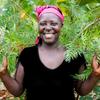
Margaret Muchanga
FarmerKenya+
Margaret is a 52 years old banana, coffee and dairy farmer from Kitale. Since 2016 she is implementing agroforestry and sustainable agriculture on the 2.4-hectare farm where she lives with her family. Thanks to improved soil fertility her maize yields has tripled. Her cows have also benefitted from a new diet full of protein leaves which has improved the milk productivity. Margaret has planted more than 100 agroforestry trees at her farm and her favorite is Grevillea.

John Munsell
Associate Professor, Virginia Tech UniversityUSA+
John Munsell, PhD, is an Associate Professor in the Department of Forest Resources and Environmental Conservation at Virginia Tech University. He is Past-President of the Association for Temperate Agroforestry and Associate Editor for Agroforestry Systems. He has authored more than 40 research publications and received over 2.5 million USD in funding to support agroforestry, bioenergy, and forest policy programs. John teaches agroforestry and permaculture at Virginia Tech, and has worked with communities from Appalachia to Cameroon to study implementation and associated environmental, social, and economic impacts. He is co-author of The Community Food Forest Handbook published by Chelsea Green and a chapter on forest farming in the forthcoming textbook North American Agroforestry: An Integrated Science and Practice, 3rd ed.

Catherine Muthuri
Kenya+
Dr. Catherine Muthuri is a senior scientist at World Agroforestry (ICRAF). She holds a PhD in plant ecophysiology from Jomo Kenyatta University of Agriculture and Technology-JKUAT under a split site scholarship at Nottingham University UK. Her passion is engaging in research in development for improved food security and resilient livelihoods of smallholder farmers in Africa. Catherine is the project manager of the Trees for Food Security project funded by ACIAR operating in Ethiopia, Rwanda and Uganda.
Before joining ICRAF, Catherine was an associate professor at JKUAT and served for two terms as chairperson of Botany Department. She has published widely and supervised numerous graduate students.
Catherine is a recipient of the presidential award, the Elder of the Order of the Burning spear (EBS) in recognition of her distinguished service to Kenya. She has served in several boards including Kenya National Trading Cooperation and is the ICRAF DG representative to the Governing Council of African Centre for Technology Studies (ACTS). Catherine is also chair of ICRAF staff Association.

P.K. Ramachandran Nair
USA+
Prof. Nair is a pioneering researcher and educator and a world leader in agroforestry. Currently he is the only living (active) member of the group that established ICRAF in 1977. His path-breaking research on multistory cropping with tree crops in his native Kerala, India, during the early 1970s contributed to laying the scientific foundations of agroforestry. During his outstanding career with ICRAF, Nairobi, for about 10 years and at the University of Florida since 1987, Prof. Nair has made unparalleled contributions to the development of agroforestry. He conceptualized the series of World Congresses of Agroforestry and organized the first one in Florida in 2004. His numerous recognitions include Fellow of the American Association of the Advancement of Science, American Societies of Agronomy, Crop Science, Soil Science, and Forestry; the Humboldt Prize of Germany; and honorary doctorate degrees from Universities in Japan (Kyoto), Canada (Guelph), Spain (Santiago de Compostela) and others.

Emmanuel Petel
European Commission, DG Agriculture and Rural DevelopmentBelgium
Rowan Reid
Bambra Agroforestry Farm / Australian Agroforestry FoundationAustralia+
Rowan Reid is a forester amongst farmers. In 1987 he established his private Bambra Agroforestry Farm where he grows more than 70 tree species for timber and other products integrated with sheep grazing. He is now harvesting, milling and solar drying furniture timber and runs tours and courses for farmers, students and professionals.
As an academic, Rowan developed the first tertiary subject in agroforestry in Australia (at The University of Melbourne, 1991) and the award winning Australian Master TreeGrower (MTG) course for farmers. The MTG is now delivered across Australia and overseas (Timor Leste, Indonesia (ACIAR), Vanuatu (ACIAR) and Africa) by the Australian Agroforestry Foundation (a not-for-profit organisation he chairs).
Rowan has written many books about agroforestry and tree growing. His latest is “Heartwood – The art and science of growing trees for conservation and profit”.

José Ruiz-Espi
European Commission, DG Agriculture and Rural DevelopmentBelgium+
José RUIZ ESPI is Policy Officer dealing with research and innovation activities at DG Agriculture and Rural Development of the European Commission. His portfolio includes notably the agronomic aspects of the bioeconomy and of the circular economy.
He has been a European Commission official since 2005, working mainly in research and innovation issues, firstly in the domain of bioenergy, and since January 2016 in his current position at DG AGRI. He also spent some years at the EU Delegation to the Republic of Guinea, where he was responsible for development cooperation projects.
José RUIZ ESPI is Agronomic Engineer, with postgraduate training in Food Quality and Environmental Management.

Maria-Helena Semedo
Italy+
Maria Helena Semedo, a leading expert in global development issues, has worked in public service for over thirty years.
Currently serving as Deputy Director-General, Climate and Natural Resources, for the Food and Agriculture Organization of the United Nations, Ms Semedo is an economist and politician from Cape Verde.
A strong advocate on the importance of food security, nutrition and sustainable agriculture as the key to tackling the root causes of hunger and poverty, Ms Semedo helps give voice to the most vulnerable people and communities around the world, especially the rural poor and women.
Before taking up her current duties in 2013, Maria Helena gained valuable experience and insight in Africa, first as FAO Representative in Niger, then as Deputy Regional Representative for Africa and Subregional Coordinator for West Africa.
Ms Semedo started her career in 1984 as an economist for the Cape Verde Ministry of Planning and Cooperation and later at the Bank of Cape Verde. Two years after becoming Secretary of State for Fisheries, in 1993 she was appointed Minister for Fisheries, Agriculture and Rural Affairs – the first ever women Minister in Cape Verde. After serving as Minister for Tourism, Transportation and Marine Affairs from 1995-1998, she became Member of Parliament, a position she held until 2003. During this time she also represented her country in many international organizations.
Award and honors:
December 2018: The Universidade Aberta in Lisbon confers the Honoris Causa doctorate for her work in global sustainable development.
March 2018: Named “Woman of the Year” at the commemoration of the 2018 Women Diplomats Day in Portugal.
May 2008: Receives the Order of Niger for her distinguished service to the field of agriculture.
Fergus Sinclair
Kenya / United Kingdom+
Fergus Sinclair is Leader of Systems Science at World Agroforestry (ICRAF), on the faculty in the School of Natural Sciences at Bangor University, Leader of the Livelihood Systems Flagship of the CGIAR Research Program on Forests Trees and Agroforestry (FTA) and project team leader for the report on agroecology for the High Level Panel of Experts (HLPE) of the UN Committee on World Food Security (CFS). He is known for applying a systems perspective to agroforestry, considering agronomic, conservation and economic dimensions, pioneering work on acquisition of local knowledge and developing and applying novel methods to understand and model complex social-ecological systems at field, farm and landscape scales. He has developed negotiation support tools for exploring trade-offs and synergies amongst impacts of land use change on ecosystem services and a new research ‘in’ development paradigm that applies systems science at the scale of impact required to meet the UN SDGs. He co-authored a book on effects of trees on crops and soil fertility in 2003 and a review of their impacts on the living components of soil a decade on. He contributed to insights on aspects of vulnerability, empowerment and equity, that were applied to developing participatory methods to design more diverse and inclusive agroforestry options for smallholder farmers. See full googlescholar profile here. He has holds a BSc in Agriculture from Reading University and obtained his PhD from the Department of Forestry and Natural Resources at Edinburgh University.

Tony Simons
Kenya+
Tony Simons has worked for over thirty years on issues at the agriculture/forestry interface. This experience has been gained in over 50 countries in the private sector (Shell), academia (University of Oxford), official development assistance (ODA/DFID) and research (CGIAR). He has a PhD in genetics from Cambridge University (UK) as well as an Honorary Professorship in Tropical Forestry at the University of Copenhagen. He has published over 100 research papers and has mentored dozens of young female and male scientists in developing countries. Tony is passionate about the transformative and profitable change that the private sector and impact investors can bring to development, having established partnerships with MARS Inc., DANONE, Syngenta, Boehringer and Unilever. He also sits on various Boards and Investment Committees including Global Restoration Council, TEEB Advisory Board, ACTS, Livelihoods Fund and Tropical Landscape Finance Facility.
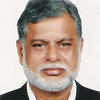
Virendra Pal Singh
India+
Virendra Pal Singh is currently CIAT’S Representative for South Asia. He was a Senior Advisor for Policy and Impact at the International Center for Research in Agroforestry (ICRAF) from 2014 to 2018. He was among the major forces behind for developing and bringing out the National Agroforestry Policy for India, first anywhere in the World.
From 2003-2014 Dr. Singh was ICRAF'S founding Regional Director for South Asia and established its office in New Delhi and the Regional Program. In 2014 he was able to successfully organize the 3rd International Congress of Agroforestry in New Delhi, inaugurated by the Honorable President of India and attended by 1200 participants from 92 countries. The Congress was dovetailed with the "Krishi Karmanya Award" bestowed to high performing farmers by the Government of India, and was witnessed by the Award Winning Farmers, fourteen State Chief Ministers and Agriculture Ministry Officials.
Prior to ICRAF, Dr. Singh worked at the International Rice Research Institute (IRRI) for more than two decades, as Problem Soils Specialist, and as Senior Agronomist & Team Leader, Rainfed Rice Farming Systems. This effort has been widely recognized by the Central and State Governments of the country.
While being in research he also had opportunity to support more than 50 Masters and Doctoral degree students and Post-Doctoral Fellows, and to provide consultancies a.o. to FAO and IFAD.
He has a Ph. D in Soil and Water Management and more than 250 journal papers to his credit, and brings along with him a professional experience of over 40 years. He is fluent in English, Hindi and Filipino language.

Rakesh Bhushan Sinha
India+
R.B.Sinha, after completing post graduation in life sciences, joined Indian Forest Service, one of three All India Services in India in 1986. After induction in the service he successfully completed three year professional course in the National Forest Academy at Dehradun and was awarded Diploma in Forestry, equivalent to Masters degree in forestry and was allocated to Madhya Pradesh cadre, which is having the largest area under forest cover in India. He served in Madhya Pradesh in field as well as in provincial Government in various capacities He was instrumental in establishing State Eco-tourism Board and State Biotecnology Council. After that, he was posted as Joint Secretary in federal Government. He formulated National Mission on Sustainable Agriculture, a mission addressing the issues of climate change in agriculture and oversaw its implementation as Mission Leader. Mr. Sinha has a vast experience of developing, institutionalizing and implementing policies which he has been doing in India since the starting of his career in 1986 . He has been responsible for formulating National Agroforestry policy of India, the first in the world. Agroforestry was also suffering in India as no federal department was responsible for its development. He has been instrumental in getting the subject allocated to Department of Agriculture, Cooperation and Farmers’ Welfare at federal level. Subsequently, he also succeeded in getting approved a federal program on agroforestry titled as Sub-Mission on Agroforestry in 2016 having an outlay of $225 m for a period of 4 years. Leveraging this resource he has been successful in persuading 23 provinces to relax their transit regulations. He also brought the issue of relaxing regulations for establishment of timber based industries at the federal level and was successful in this endeavour too in 2017 and hundreds of new licences have granted for establishing new wood based industries in the country. He has also worked as expert member of National committee constituted for providing a roadmap for promoting tree outside forest by Ministry of Enviroment, Forests and Climate Change, Govt.of India. He has also formulated a National Policy on crop residue Management. He has also formulated ambitious scheme for bringing water to each farmer field titled as Prime Minister Irrigation Scheme. He has represented country as member of Indian delegation on various international foras like UNCCD, UNFCC and has also travelled to many countries as part of Indian delegation.

Sarah Magida Toumi
France / Tunisia+
Sarah Toumi est une entrepreneuse sociale franco-tunisienne, fondatrice d'Acacias for all un mouvement de lutte contre la désertification, la pauvreté et l'inégalité des genres en Tunisie. C'est en découvrant le village de ses grands-parents tunisiens à Bir Salah qu'elle est sensibilisée dès l'enfance aux questions de dégradation des sols et stress hydrique, et leur corrélation avec les problématiques de développement. Avec l'aide de son père, elle fonde l'association Dream in Tunisia à l'âge de 11 ans, puis Acacias for all pour travailler sur la structuration des filières agro-écologiques en zones arides. Sarah a reçu de nombreuses récompenses internationales prestigieuses par Ashoka, Echoing Green, Forbes 30|30, Rolex Awards for Enterprise ou encore le prix Takreem qui reconnait l'engagement sociétale et humaniste des personnalités du monde arabe. Elle conseille le Président de la République française au sein du Conseil Présidentiel pour l'Afrique.

Gwendolyn Yu
BNP ParibasFrance+
As Head of Engagement Transformation in the BNP Paribas Group Company Engagement team, Gwen leads transversal projects to accelerate business decision making based on the Group's sustainability commitments in line with UN SDGs by coordinating and assisting in positive banking business origination and employee engagement. Prior to this, Gwen worked for various parts of the BNP Paribas Group including Corporate and Institutional Banking and Retail Banking Services. She has been with BNP Paribas since 2010. Before joining BNP Paribas, she worked in Asia and North America providing market entry strategies, intellectual property valuation, corporate philanthropy, and brand management for clients in financial services, tech, FMCG, automotive, and pharmaceuticals on behalf of several professional services firms, including PricewaterhouseCoopers, Edelman and Deloitte & Touche.
https://www.linkedin.com/in/gwen-yu

